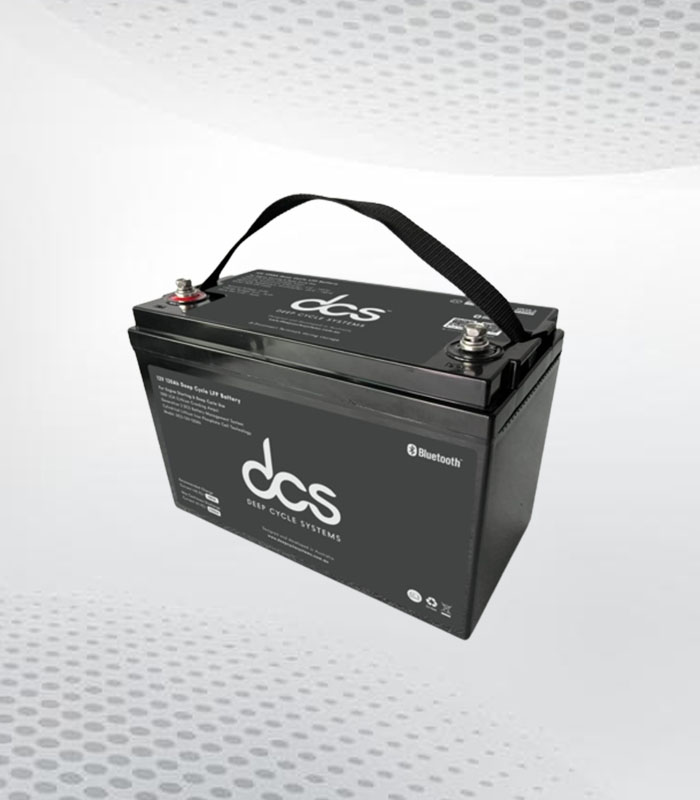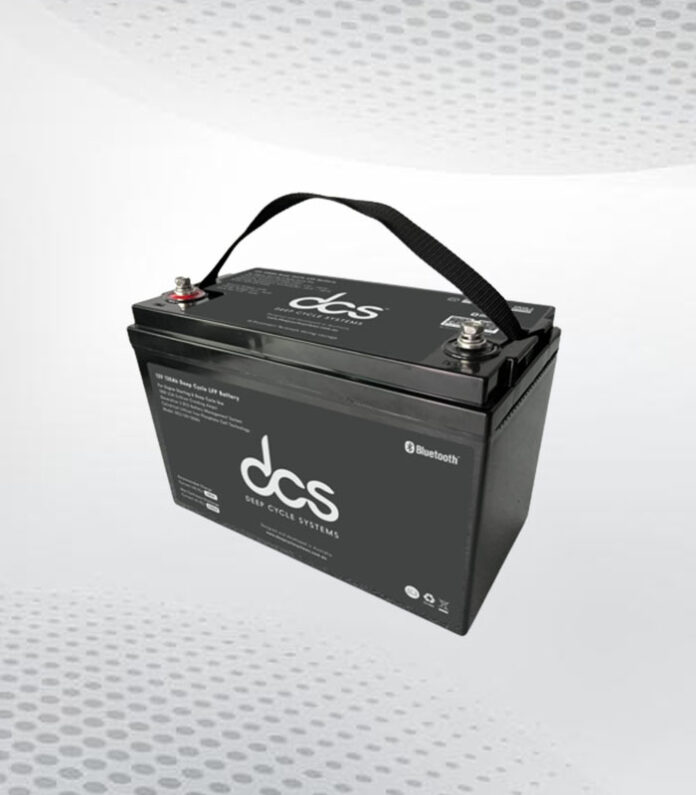A reliable deep cycle battery is essential When powering your off-grid adventures or providing backup power for your caravan or boat. One popular choice for those needing a long-lasting and high-capacity battery is the 120ah Deep Cycle battery. This blog post, will delve into the power and potential of a 120-ah Deep Cycle battery, exploring its technical specifications, key benefits, common applications, maintenance tips, troubleshooting, and how to choose the right one for your needs.
Key Benefits of Using a Deep Cycle 120Ah Battery
Utilising a 120-ah Deep Cycle battery has many advantages, particularly for those requiring a reliable power source over extended periods. This battery type stands out due to its impressive capacity to deliver consistent energy output, making it exceedingly suitable for various demanding applications. One of their standout attributes is the endurance of these batteries under frequent and deep discharge-recharge cycles. Unlike traditional automotive batteries that falter under similar conditions, a deep cycle 120Ah battery thrives, ensuring a sustainable and dependable energy flow for critical applications.
Moreover, their robustness and longevity are unparalleled, providing users with a cost-effective solution over the long term. Investing in a 120-ah Deep Cycle battery translates into fewer replacements and reduced maintenance costs, underpinning its economic benefits. The versatility of these batteries further enhances their appeal. Whether for powering essential appliances in remote off-grid locations or for use in recreational vehicles, their high energy density ensures that your power needs are met without compromise.
 Unpacking the 120ah Deep Cycle Battery Concept
Unpacking the 120ah Deep Cycle Battery Concept
The concept of a 120ah Deep Cycle Battery centres on its design and function, which significantly differ from that of standard car batteries. Deep cycle batteries, particularly the 120Ah variant, are engineered for sustained energy delivery over prolonged periods, rather than the high initial burst of power typical of starter batteries. This distinction is crucial for applications where reliability over time is paramount, such as in recreational vehicles or marine vessels.
At its core, the 120Ah rating signifies the battery’s capacity to dispense 120 ampere-hours. This metric offers a glimpse into the potential longevity of the battery’s power supply under ideal conditions, essentially indicating that it can deliver a one ampere current for 120 hours. This capacity for prolonged discharge and recharging ability makes it a cornerstone for setups demanding a consistent and reliable energy source.
Constructing deep cycle batteries facilitates their resilience and suitability for repeated deep discharges. This starkly contrasts conventional automotive batteries, ill-suited for such applications due to their focus on providing short, high-current bursts.
The 120-ah Deep Cycle battery’s design incorporates thicker plates and specialised separators, enhancing its endurance and capability to recover from deep discharge cycles without significant degradation of capacity or lifespan.
This intrinsic design philosophy of the 120-ah Deep Cycle battery, focusing on durability and steady power delivery, underscores its relevance in various scenarios. From powering electronic appliances in remote locations to ensuring the functionality of critical systems in marine environments, the 120-ah Deep Cycle battery emerges as an indispensable component in systems where power reliability cannot be compromised.
The Technical Specifications of a 120 Amp Deep Cycle Battery
Delving deeper into the specifics, a 120 Amp Deep Cycle Battery’s hallmark is its ampere-hour (Ah) rating, indicative of its energy storage capacity. This rating, at 120Ah, means that theoretically, the battery can discharge a steady current of 1 ampere for 120 hours, or equivalently, 2 amperes for 60 hours. However, it’s crucial to note that the actual performance may vary based on the discharge rate, with higher rates potentially leading to a somewhat lower total energy output due to inefficiencies.
Voltage is another critical specification, with most 120-ah Deep Cycle batteries operating at a nominal 12 volts. This makes them widely compatible with many devices and systems, especially in recreational vehicles, marine applications, and solar power setups. The voltage in conjunction with the Ah rating defines the total energy capacity of the battery, which in this case would be approximately 1.44 kilowatt-hours (kWh).
In terms of construction, these batteries are often available in various types including flooded lead-acid, Gel, and Absorbed Glass Mat (AGM). Each type has distinct advantages and maintenance requirements. For instance, AGM batteries are known for their resistance to vibration and minimal maintenance. In contrast, flooded lead-acid batteries might offer a higher capacity at a lower cost but require regular checks and top-ups of distilled water.
Understanding these specifications is vital for anyone considering a 120-ah Deep Cycle battery, as they directly impact the battery’s suitability and performance in various applications.
Common Applications for a 120 Amp Hour Deep Cycle Battery
The versatility and robust energy output of a 120 Amp Hour Deep Cycle Battery makes it an ideal choice for many scenarios beyond conventional automotive use. In recreational vehicles, these batteries provide the necessary power to sustain life off the grid, enabling amenities such as refrigeration, heating, and entertainment systems to run smoothly, enhancing the overall experience of your journey.
- Within the marine sector, they prove indispensable, offering the reliability required for navigational equipment, lighting, and communication devices, ensuring safety and comfort during prolonged voyages at sea.
- Moreover, for renewable energy enthusiasts, the 120-ah Deep Cycle battery integrates seamlessly into solar power setups, storing excess energy generated during the day for use when sunlight is scarce. This capability is critical for maintaining uninterrupted power supply in remote locations, where traditional grid access may be limited or non-existent.
- Additionally, these batteries serve a crucial role in home backup systems, safeguarding against power outages by powering essential appliances and security systems, thereby offering homeowners peace of mind during unexpected electrical interruptions.
In essence, applying a 120-ah Deep Cycle battery spans diverse needs, from enhancing the autonomy of recreational and marine vehicles to fortifying renewable energy systems and emergency power backups. This wide applicability underscores the battery’s integral role in various setups where reliability and long-term power delivery are paramount.
Maintenance Tips for Your 120-ah Deep Cycle Battery
Maintaining the health and efficiency of your 120-ah Deep Cycle battery is paramount for ensuring its longevity and reliable performance. First and foremost, regular cleaning is crucial; ensure the battery’s terminals and surface is devoid of dirt and grime, which could impede its function. For those with flooded lead-acid types, routinely check and maintain the correct water level by adding distilled water when necessary, being cautious not to overfill.
Avoiding overcharging is another vital consideration. Utilise a high-quality charger that matches your battery’s specifications, as overcharging can lead to excessive heat, reducing the battery’s lifespan and capacity. Similarly, steer clear of allowing the battery to deplete entirely. Deep discharges can cause undue stress on the battery, so aim to recharge before the power drops below 50% capacity.
Temperature plays a significant role in the battery’s health. Store and operate the battery in a location within the recommended temperature range. Extreme cold can diminish capacity, while excessive heat can precipitate premature ageing. If the battery is not in use for extended periods, it’s advisable to store it in a charged state, recharging it every three to six months to prevent sulfation. This process can severely affect its performance.
Choosing the Right 120-ah Deep Cycle Battery for Your Needs
Selecting the ideal 120-ah Deep Cycle battery necessitates careful consideration of several critical factors beyond mere capacity. The battery type—whether flooded lead-acid, Gel, or Absorbed Glass Mat (AGM)—plays a pivotal role, each offering distinct advantages tailored to different scenarios. For instance, AGM batteries excel in scenarios requiring durability and minimal maintenance, making them suitable for rugged or vibration-prone environments.
Furthermore, evaluating the physical constraints of your intended application is crucial. The battery’s dimensions and weight must align with your setup’s available space and weight limitations, be it in a caravan, boat, or off-grid power system. Compatibility with your existing electrical system, particularly voltage requirements, ensures seamless integration without requiring extensive modifications.
The anticipated energy demand of your application is also a vital consideration. Assess the electrical load and duration of use to ensure the selected battery can meet these demands without frequent recharges, thus maximising efficiency and lifespan.
Lastly, brand reputation and warranty offerings should not be overlooked. Opting for a manufacturer known for quality and reliability can provide added assurance and support throughout the battery’s lifecycle. Taking the time to weigh these factors diligently will guide you towards a 120-ah Deep Cycle battery that best suits your requirements, balancing performance, durability, and value.
Troubleshooting Common Issues with 120 Amp Hour Deep Cycle Batteries
Navigating challenges with a 120-ah Deep Cycle battery, whilst relatively rare due to their robust design and construction, can be crucial for maintaining optimal performance and longevity.
- One common issue is sulphation, where lead sulphate crystals accumulate, impeding the battery’s capacity and efficiency. Regularly charging your battery and keeping it at a proper charge can significantly reduce the risk of sulphation.
- Overcharging presents another challenge. To avoid this, it is imperative to use a charger compatible with the specific requirements of your 120-ah Deep Cycle battery. An appropriate charger will prevent the battery from receiving more charge than it can safely handle, thus averting potential damage caused by excessive heat.
- Although less common, internal shorts can occur and usually indicate a more severe problem within the battery.
- This condition can significantly reduce the battery’s capacity and may necessitate professional assessment or replacement. Monitoring your battery’s performance and being alert to any sudden drops in capacity or unexpected behaviour can help in early detection of internal shorts.
- Addressing these issues promptly when they arise and adhering to recommended maintenance practices can significantly mitigate common problems associated with 120Ah deep-cycle batteries.
Keeping the battery terminals clean and ensuring a secure connection can prevent power loss and ensure consistent performance. Consulting with a professional or referring to the manufacturer’s guidance is advised for more complex issues to ensure correct and safe resolution.
FAQs
Is powering a caravan entirely with a 120-ah Deep Cycle battery feasible?
AA 120-ah Deep Cycle battery can power the essential systems within your caravan, including lighting, ventilation fans, and small electronic devices. However, suppose your caravan utilises high-demand appliances, such as air conditioning units or large refrigerators.
What duration of power can I expect from a 120-ah Deep Cycle battery on a single charge under typical usage?
The duration a 120-ah Deep Cycle battery can sustain power on a single charge significantly depends on the load it is subjected to. For instance, with a continuous draw of 10 amps, such as from small appliances or basic lighting, you could expect the battery to last approximately 12 hours.
Conclusion
The significance of the 120-ah Deep Cycle battery within various sectors – from off-grid living to critical backup power solutions – cannot be overstated. Its robust capacity and enduring design make it essential for anyone needing a dependable and efficient power source. The discussion has illuminated the battery’s impressive capabilities, from its technical prowess to its extensive benefits across many applications.
| Other Good Articles to Read |
| Blogs-Nation |
| Blogs-Peoples |
| Bryan Smith Blogs |
| intellect blogs |
| the fault in our blogs |
| blogs eu |
| oz forums |
| recruitment blogs |
| zet blogs |
| id blogs |
| Blog Studio legale |
| blogs map |
| Related Business Listings |
| Directory Submissions |
| Regional Directory |


